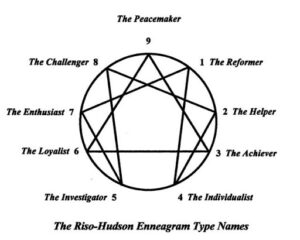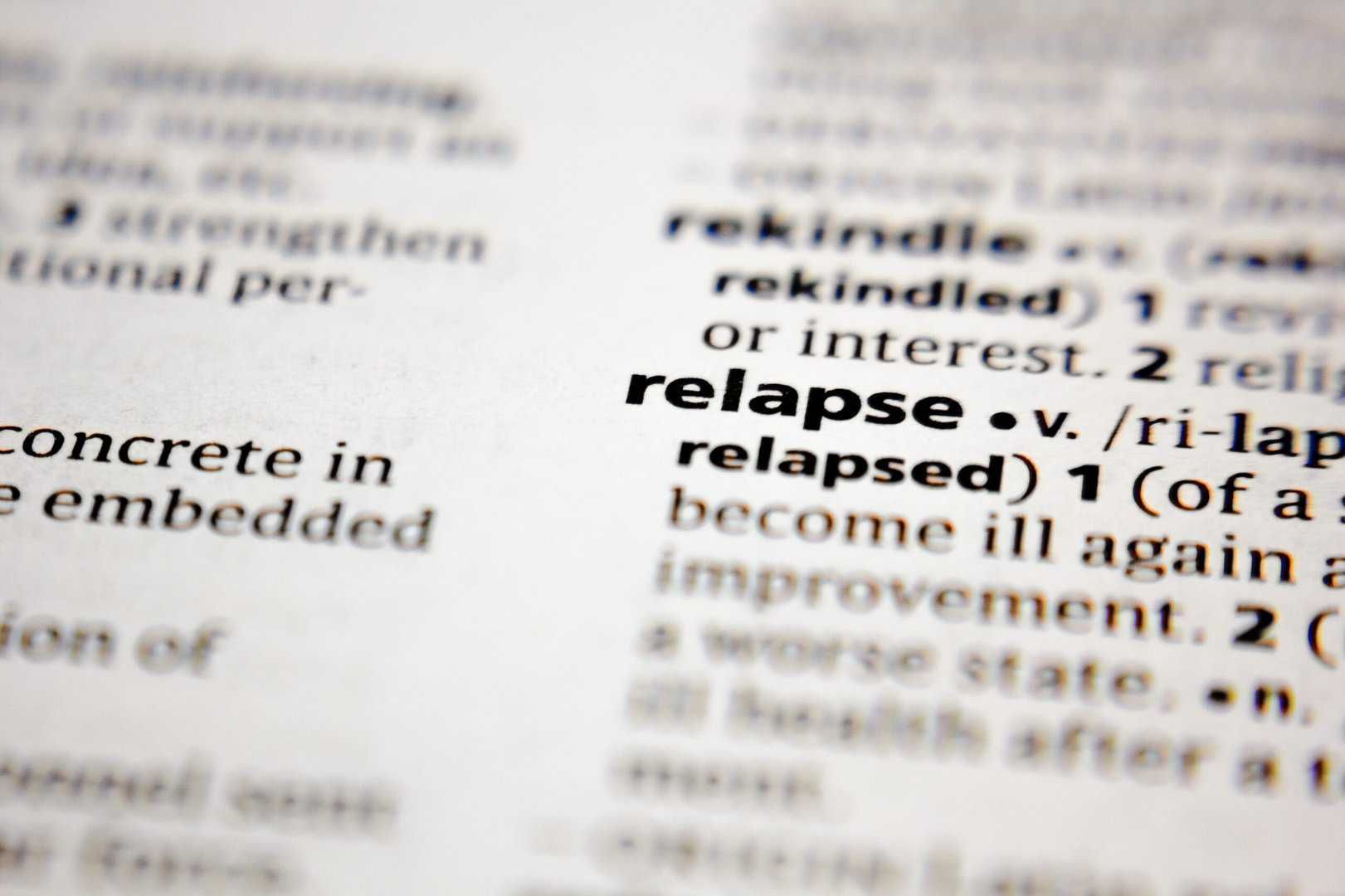Using the Enneagram for Growth in Recovery

What is the Enneagram?
 The Enneagram is a dynamic personality typing system that offers profound insights into human behavior, motivations, and interpersonal dynamics. Originating from ancient spiritual traditions and evolving into a modern psychological tool, the Enneagram delineates nine distinct personality types, each characterized by core fears, desires, and defense mechanisms.
The Enneagram is a dynamic personality typing system that offers profound insights into human behavior, motivations, and interpersonal dynamics. Originating from ancient spiritual traditions and evolving into a modern psychological tool, the Enneagram delineates nine distinct personality types, each characterized by core fears, desires, and defense mechanisms.
By understanding our Enneagram type, we gain clarity on our patterns of thinking, feeling, and behaving, paving the way for personal growth, self-awareness, and deeper connections with others.
How can Enneagram Understanding Help in Early Recovery?
The Enneagram is a powerful tool for gaining insight into oneself and understanding interpersonal dynamics, including in the context of recovery from addiction or other challenges. Here’s how you can use the Enneagram for these purposes:
- Self-Understanding: Each Enneagram type represents a different way of viewing the world, behaving, and interacting with others. By identifying your Enneagram type, you can gain deeper insight into your motivations, fears, desires, and coping mechanisms. This self-awareness can be incredibly valuable in recovery because it allows you to recognize patterns of behavior that may be contributing to your struggles and to develop healthier ways of coping.
- Identifying Triggers and Coping Mechanisms: Understanding your Enneagram type can help you identify the specific triggers that may lead to addictive behaviors or other destructive patterns. For example, if you are a Type Seven (The Enthusiast), you may be prone to seeking stimulation and avoiding painful emotions, which could lead to substance abuse as a way of numbing difficult feelings. By recognizing these tendencies, you can develop more constructive coping mechanisms that address the root causes of your struggles.
- Building Empathy and Compassion: The Enneagram can also help you understand the perspectives and motivations of others, including family members, friends, and support network in recovery. By recognizing that each person has their own unique worldview and coping mechanisms based on their Enneagram type, you can develop greater empathy and compassion for their struggles and cultivate healthier relationships built on understanding and acceptance.
- Conflict Resolution: In recovery, conflicts may arise in relationships due to misunderstandings, unmet needs, or differing coping strategies. By understanding the Enneagram types of yourself and others involved in the conflict, you can identify underlying motivations and communication styles that may be contributing to the discord. This awareness can facilitate more effective communication, compromise, and conflict resolution, fostering healthier and more supportive relationships in recovery.
- Personal Growth: Ultimately, the Enneagram can serve as a roadmap for personal growth and transformation in recovery. By recognizing your habitual patterns of thinking, feeling, and behaving, you can work towards breaking free from destructive cycles and developing greater resilience, self-compassion, and authenticity. Additionally, the Enneagram’s emphasis on integration and balance can help you cultivate a more holistic approach to recovery that addresses your physical, emotional, mental, and spiritual well-being.
Incorporating the Enneagram into your recovery journey can provide valuable insights and tools for self-awareness, personal growth, and building healthier relationships. However, it’s important to remember that the Enneagram is just one tool among many, and it’s not a substitute for professional therapy or support from trained professionals in addiction recovery.
Enneagram Basics
by Justin Virant, MA, LPCC, Primary Therapist
- The Enneagram is a nine pointed symbol
- Each of the points corresponds to a different personality type
- Each of the types tries to mimic or fake a quality of essence rather than attuning to it’s natural expression
Why is it important to understand one’s type and the types of those around you?
- The type is often thought of as an important potential and difficulty we experience throughout our life, becoming aware of it can help free us from the difficulty of it and activate the potential of it.
- In our narcissism, we often assume that others are either more like us or unlike us than they are. The enneagram can encourage us to see an important feature in others and actually see others more as they are.
- From a recovery standpoint, the stress of the issues related to type can often drive people to use substances. In addition, the fulfillment addicts often seek through substances can be found by experiencing the higher potentials of one’s type.
Head Types
All struggle with issues of certainty, knowing and security.
5. The Investigator
This type wants to understand the world, can really go deeply into subjects and master them. Fives can become obsessive and withdrawn, lost in information and exclude people and the bigger picture. They can confuse knowledge and intuition and, more positively, they can also be especially attuned to intuitive understanding.
6. The Loyalist
This type is interested in knowing how we participate in the world, what can I trust or depend on? They tend to look to authorities for certainty and then doubt them. Ideally, sixes embody trust and the will, the ability to persevere, but they can be challenged by giving away their authority and by doubt.
7. The Enthusiast
This type is oriented towards freedom, the experience of positivity and joy, but they can become scattered and have difficulty sinking into things deeply. Ideally, sevens are connected to pleasure, freedom and joy, but they can be challenged by a tendency to maintain these qualities through seeking these experiences externally and not finding them within themselves.
Heart Types
All struggle with issues of love and shame (not feeling loved)
3. The Achiever
This type is a master of effectiveness and doing things well, can become too task oriented and can overwork. Ideally this type expresses and is in touch with their value, but this type’s challenge is seeking value through recognition and accolades (vanity).
4. The Individualist
This type loves depth, intimacy and beauty, who am I really? They try to find this authenticity and can become self-involved, moody and touchy. Ideally this type is able to express their uniqueness and identity, but this type’s challenge is trying to be unique and special and not recognizing their inherent uniqueness.
2. The Helper
This type is aware of our relatedness, sensitive to the needs of others, and can become very sensitive to others. They can forget their own needs and desires. Ideally this type is in touch with their love and sensitivity; the type’s challenge is loving others, but forgetting about their own needs (codependence).
Belly Types
All struggle with issues of power and anger.
8. The Challenger
This type is interested in what makes us strong or powerful in life, action oriented and like things big and powerful. Their challenge is letting the self be vulnerable. Ideally, this type is in touch with the quality of strength and innocence and expresses this; the challenge for this type is pretending to be tough rather than feeling their actual strength.
9. The Peacemaker
This type is interested in ease, peace, groundedness, harmony and is able to see others points of view. They seek harmony, unity, holism–can tend to shut out the world to achieve peace. Ideally this type is able to be in touch with this holism; the challenge for this type is again pretending to be in touch with this holism and accommodating others while often denying their anger.
1. The Reformer
This type cares tremendously about integrity, very high standards and cares about fairness and justice. They can become rigid in their views and attitudes. Ideally this type is sensitive to the good or what’s right and expresses this; the challenge for this type can be a kind of self-righteousness and active inner and outer critic (perfectionism).
Exploring Your Type
Which type do you identify with?
Why do you identify with that type?
Allow yourself to feel and experience the positive qualities of your type and talk about these with your partner. Then allow yourself to feel the challenging aspects of your type, become this part and talk from this part with your partner.
What is it you need when you are in the challenging expression? Can you offer this to yourself or contact this quality within yourself rather than seeking it externally?
For more information on how we use the Enneagram in addiction treatment, contact us for a no-cost consultation.

